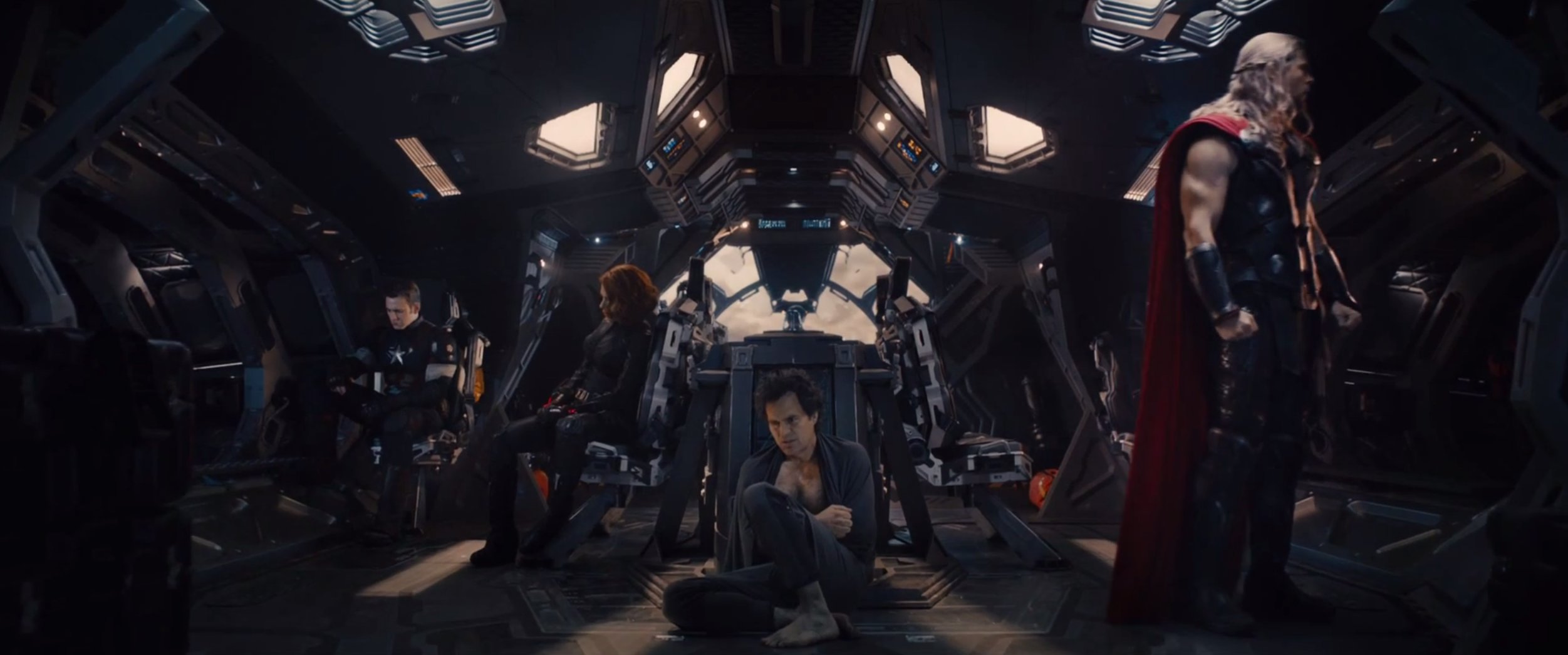The Avengers was joyous bonkers fun. Joss Whedon expertly amalgamated the disparate personalities of the team and the uneasy alliance they had to form to beat a common enemy. The Age of Ultron abandons a little of the fun of the first entry for some needed answers to the “Why?” questions. With the task nearly complete, why should these people stick together? Why should they keep fighting? Why is Hawkeye important? You know, the big questions.
Age of Ultron opens with the Avengers assaulting the last remaining Hydra strong hold in eastern Europe. Other than a brief encounter with the gifted Maximoff Twins: Quicksilver (Aaron Taylor-Johnson) and Scarlet Witch (Elizabeth Olsen), the raid successfully finishes off Hydra. Before going off to celebrate, Tony Stark (Robert Downey Jr.), Bruce Banner (Mark Ruffalo), and Stark’s operating system Jarvis (Paul Bettany) try to create an intelligent peacekeeping robotic system to protect the Earth so they do not have to. However, their creation becomes Ultron (James Spader), who decides humanity’s survival comes from its large scale destruction. Before Thor (Chris Hemsworth), Captain America (Chris Evans), Black Widow (Scarlett Johansson), and Hawkeye (Jeremy Renner) can stop him, Ultron escapes and begins his evil plot. The group then needs to storm, norm, conform, and reform to put an end to an AI genius of their own creation.
Much like the Dark Knight Rises, bloat is starting to rear its ugly head for the Avengers franchise. Even after the “group building” first film, we have to build successful backstories for Avengers without franchises (Black Widow, Hawkeye, Hulk), and the newcomer twins in addition to Ultron’s origin. Characters from Avenger franchise players that couldn’t be cameoed (read: Paltrow and Portman) need explanations. The movie has to tie in to the larger Marvel universe. The movie needs to develop stakes for the action sequences, which need to be awesome. There’s a hands on producer watching you through all of this creation to top it off. Ugh, I got exhausted just writing all that. Credit goes to Whedon for keeping the damn from bursting. He finds creative ways to cram as much in as possible such as having Tony host a dinner party or using a character’s powers to pull in back story. Even extremely complicated AI jargon is explained as efficiently as possible without leaving too many plot holes. Whedon initially had a 3.5 hour draft of this film, and it is a testament to his smart direction, writing, and editing that he could streamline and keep the story coherent.
Because when the director is firing, he delivers top notch entertainment. The banter between Avengers is still a joy, even adding a nice running gag about manners. In a nice inversion, Cap and Black Widow are on par in the one-liner department with Iron Man. While Loki was deliciously over the top, Ultron twists the dialogue into a menacing quipfest, making you terrified of every implication in each of his threats. This jabbing maintains a light tone in preparation for a Whedon third act, in which there is going to be a surprise in the third act at some point, usually with heavy consequences. Action fans might be a little disappointed; while there are some great fights and set pieces, there is nothing that rivals the battle of New York. Whedon goes a different route with this film: by forcing introspection for each Avenger. This choice affirms the roles of each Avenger and their importance to the fight, especially Black Widow and Hawkeye. Widow gets as tragic a backstory as I can remember, and Hawkeye, being fully in control in this film, comes through big time in the Avenger moment of need. Joss Whedon understands and embraces hardcore fandom, and makes sure there is much excitement in his films to satisfy the die hardiest ones.
Whedon also takes advantage of the wealth of acting talent at his disposal, better understanding where each character fits into the team. Front and center, as he would want it, is Downey, razor sharp and narcissistic as ever. Much of the story directly revolves around consequences of Tony Stark’s hubristic choices, and Downey sells the fear, sadness, and anger in addition to his charming magnetism. Scarlett Johansson makes the most out of her added screen time; she gets the best emotional material in attempting to connect with Mark Ruffalo’s Hulk. Jeremy Renner also finds layers to Hawkeye with the little backstory they give him; sometimes a team needs a relentless optimist. The Chrises (Hemsworth and Evans) are used here mostly for comic relief, although Cap gets some nice heroic moments (Whedon hasn’t worked out Thor other than a conduit for other galactic information). Elizabeth Olsen and Aaron Taylor-Johnson do not get much to do, hopefully we get more in later chapters there. There are also lots of cameos everywhere, including walking one eyer Sam Jackson and Linda Cardellini. Once again though, there is one main villain. A lot is expected of James Spader’s Ultron, as he has to be menacing enough to threaten and scare gods. Spader has a way of giving words he speaks unease, and his coldly logical speaks makes you squirm in your seat. Spader deliver’s on Ulton’s menace, though not topping Tom Hiddleston in monologing.
Joss Whedon said he was exhausted after finishing the Age of Ultron. It is easy to see why: the director gave us an engaging, funny, CGI bedazzled superhero clusterf*ck that connects many pieces of the puzzle in preparation for what is to come. If the credits are any indication, the Infinity War is going to be even more crazy and better be over 5 hours long. Thanks Joss Whedon, for reminding us again that superheroes, even when broody, can still deliver a great joke.

